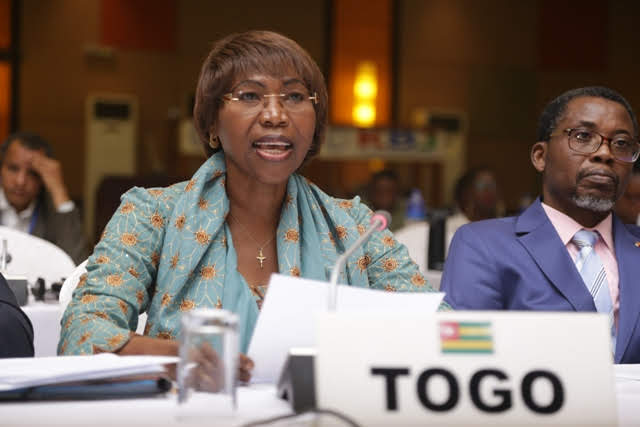In accordance with Article 62 of the African Charter on Human and Peoples’ Rights, States Parties to the Charter must submit a report every two years on the legislative or other measures taken to give effect to the rights and freedoms recognised and guaranteed by the African Charter. During the 63rd session of the African Commission, which started 24 October 2018, three countries were reviewed: Angola, Botswana and Togo. The latter which presented its 6th, 7th and 8th cumulated reports (2011 -2016) was examined on 30 October 2018.
ISHR, along with the Coalition Togolaise des Défenseurs des Droits Humains, drafted a briefing paper on the situation of human rights defenders in Togo. These submissions are intended to assist the Commission, and more specifically Commissioners, in making recommendations to State governments. The briefing paper recommends that the Togolese government combat impunity and refrain from criminalising the legitimate activities of defenders.
During the review, the Special Rapporteur on human rights defenders and also in charge of Togo, Prof Rémy Ngoy Lumbu, lamented the restriction of the workspace of defenders and the difficulties they experience in carrying out their work. He denounced the detention of activists and defenders in Togo’s prisons without any judgment to date and asked that Togo accelerates the procedures so they know the charges against them, before they are eventually released.
Addressing the situation of defenders, Commissioner Rémy Ngoy Lumbu, believes that ‘the discourse of the Togolese authorities is still not in favour of human rights defenders – when the State is actually meant to be the first human rights defender. To this end, it must create an enabling environment for defenders throughout the country’. That is why he encourages the Togolese authorities to have an ongoing dialogue with NGOs in order to achieve this.
Talking about the issue of freedom of expression and the crackdown on media outlets, he mentioned the closure of the Future Channel (LCF) and Radio City Fm, both belonging to the Sud Media group. The Togolese government replied that it was only legitimate to withdraw their radio frequency since they were emitting illegally. ‘It is advantageous for any government to let the media operate freely. Re-opening these channels will allow diversity of sources of information which can only be beneficial for the government,’ the Special Rapporteur commented.
In spite of the Coalition togolaise documenting cases of violence against LGBTI people, in its reply, the government, while understanding the need to protect LGBTI rights in the country, emphasised the absence of legal complaints in that regard and the need to ensure the stability of society by avoiding imposing any sudden changes such as decriminalising same-sex relationships. The fact that there are no complaints doesn’t mean there is no violence. It only means that LGBTI persons don’t feel safe enough to place a complaint, in a society that judges them and a system which criminalises them.
To conclude the review of Togo before the Commission, the Minister of Justice Pius Kokouvi Agbetomey, head of the Togolese delegation, thanked the Commission for the opportunity that was offered to Togo to present its cumulative reports. He believes this exercise is a way to draw the attention of the government to its imperfections, allowing it to improve. After reaffirming the criminalisation of same-sex relationships and confirming a number of arrests made during protests in the country, in a contradictory statement, he declared that he ‘accept(s) in advance all the recommendations that will be made to Togo and promise(s) to be a docile student who can be congratulated in the future’.
The government had to combine several reports not submitted on time. It promised to make it a priority in the future to submit its periodic reports on time according to the deadlines. The presentation ended with a call to the Commission to assist Togo in filling some of the gaps that were identified during the Commission’s visit. Commissioner Ngoy Lumbu seised the occasion to reiterate its call for a country visit in order to help the country find the best solutions to the issues highlighted during the review.
In light of these statements, ISHR invites the government of Togo to:
- Put in place national policies and programmes to raise awareness about law enforcement and security forces as well as justice system agents on the themes of sexual rights, gender identity, sexual orientation and the vulnerability of LGBTI groups;
- Conduct prompt, independent, transparent and impartial investigations into human rights violations committed by State agents and by persons affiliated with State agents, as part of the repression of protests, such as killing, injuring and disappearing citizens since 19 August 2017; and bring to justice the alleged perpetrators, regardless of their rank or position, in accordance with international standards.
Contacts:
Adélaïde Etong Kame, Africa Advocacy Consultant, ISHR [email protected]
Bonaventure N’Coue Mawuvi, Coalition Togolaise des Défenseurs des Droits Humains, [email protected]
Photo: ACHPR




